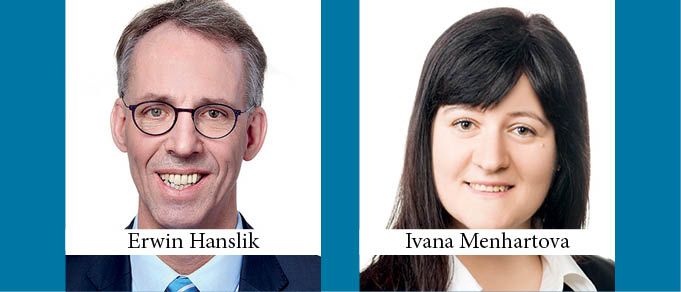It has been more than four years since new legislation revolutionizing Czech private law came into effect, mainly through the adoption of a new Civil Code. Among the most affected industries was real estate, traditionally a very strong investment sector on the Czech market. How has life been since this revolution?
Good Faith as a Condition
The flagship of the new regulation was the strengthening of good faith in the registration status in the Real Estate Register, and the resulting increase in certainty within legal dealings. Thus, whoever is registered in the Real Estate Register as the owner or beneficiary of a certain right is regarded as the rightful owner or beneficiary of that right, provided the right was acquired in good faith and for consideration. With that, acquisition from a non-owner became possible.
This principle has been welcomed,by buyers and investors. Of course, registration status may not always reflect actual ownership status. Owners therefore must pay more attention to the status of registration in the Real Estate Register and dispute any wrongful registration by filing a law suit and ensuring entry of a dispute note within the time periods set by the Civil Code, which can be up to three years. As a result, due diligence has changed in scope significantly, and it is not rare for buyers, banks, or investors to rely only on the information registered in the Real Estate Register, or to instruct their lawyers to examine acquisition titles going back only three years, instead of the previously-standard examination period of ten years.
New Real Estate Instruments
The new Civil Code has also brought back the principle that the building forms part of the land (superficies solo cedit), thus uniting the previously impractically divided ownership of the building and the land. Shortly after the new law came into force, the Real Estate Register carried out a convenient automatic unification of land plots and buildings in the ownership of one and the same owners where such unification was possible (e.g., when no right in rem registered to the land or building prevented the unification). Where the ownership can not be unified because there are different owners of the land and building, a preemption right between the owners exists.
Together with the unification of ownership, a new right in rem – the right of construction – has been introduced, allowing non-owners of land to build and place a building on foreign land on the basis of another legal title, along with lease or easement. Despite the right of construction being restricted in its duration to 99 years and being established on the basis of an agreement with subsequent registration in the Real Estate Register, it has been taken into account by banks and investors and included in the finance structures of transactions. Other newly introduced instruments – including the negative pledge and the prohibition on transference and encumbrance having effects towards third parties – have also been welcomed and used widely, especially by banks or private investors, allowing for better structuring and securing of the financing despite the nature of the instruments not being a security in the strictly legal sense of the word (i.e. having an accessory relation to the secured debt).
Good Acceptance on the Market
The market has responded positively to the new legislation. Owners, asset managers, investors, and banks have welcomed the new instruments, which enable them to better react to the specifics of each transaction. We now have more tools to manage, secure, and in general make better use of real estate. As a result, we have greater freedom – but also more responsibility – when structuring a project or a transaction, regardless of its size.
Naturally, the lack of case law relating to the new instruments prevents us from predicting with certainty how these instruments will be interpreted by the courts. When we hear talk of the future, we mostly hear that technology will dominate every possible area of life. Therefore, it may be that due diligence or valuations of real estate will be carried out by robots, and that transfer and construction agreements will be drafted by automated software. Regardless of how judges’ opinions and artificial intelligence shape the future, real estate will remain what it has always been – a solid, palpable asset worthy of being legally right and well secured.
By Erwin Hanslik, Managing Partner, Ivana Menhartova, Senior Associate, Taylor Wessing Prague
This Article was originally published in Issue 5.6 of the CEE Legal Matters Magazine. If you would like to receive a hard copy of the magazine, you can subscribe here.




